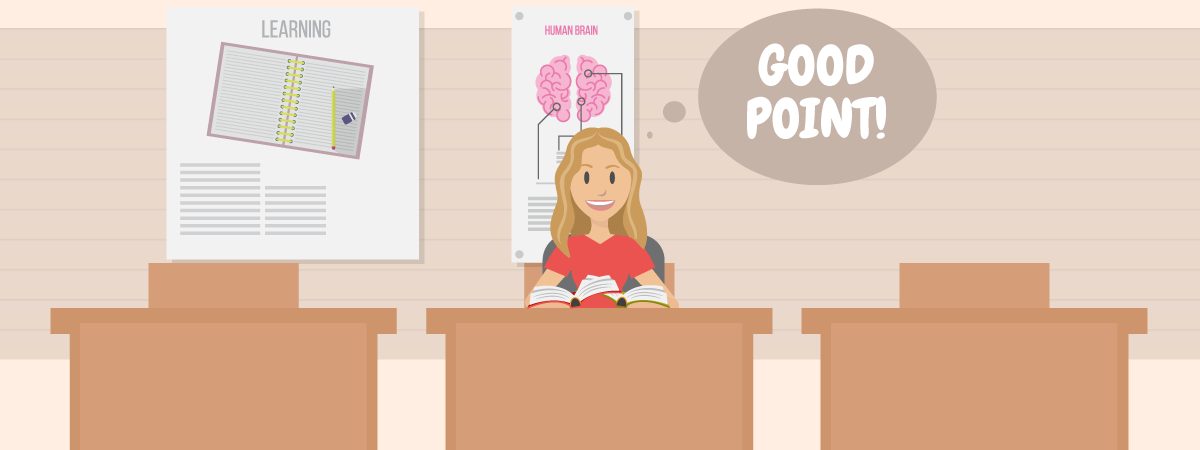10 ACT Essay Tips You Need To Know
After finishing nearly three hours of tough multiple-choice tests, you might be tempted to skip writing the optional ACT Essay. But, don’t do this–most competitive colleges and universities will want to see an Essay score. Plus, we’ve got some tips to make writing the Essay a breeze.
You’ll get a great score if you follow these ACT essay tips – do some preparation before you start writing, make sure to use proper grammar and impressive vocabulary, and proofread your work before you submit it, among other things.
More tips and details below! And, for even more expert advice, consider taking an ACT prep course with Prep Expert.
[act_one]


Be Sure To Fill Three To Four Pages Of Your Exam Booklet
Make sure you write enough to fill up three to four pages of your exam booklet–Essays less than three pages will lose points, and those with four pages score the highest.
Because the graders don’t have very much time to score your Essay—two to three minutes per Essay at most—they rely on relatively superficial criteria to assign you a score. One of these criteria is the length. Unable to read entire Essays in full, graders assume that students who wrote longer Essays had more to say, and wrote better arguments and that those who wrote shorter Essays weren’t able to develop their points.
If you have particularly small handwriting, you’ll want to write bigger than you normally do, so that you don’t have to come up with a lot of extra content to fill these pages in. And, you should make sure you always write clearly, even if you have to speed along in order to write four pages. If graders can’t read your writing (a big pet peeve!), they will dock you points.

Memorize The Prompt Ahead Of Time
The prompt will always be the same for every Essay, so if you know it beforehand, you can skip reading it, and save yourself more time to write.
Not needing to read the prompt will save you a minute or two you can then devote to outlining or writing your Essay. Additionally, if you know the prompt’s requirements by heart, you’ll be less likely to forget any of the required components of the Essay.

Outline Your Essay Before You Start Writing
Prepare a basic outline before you start writing so that you don’t develop writer’s block midway through the Essay, or forget to include any necessary information.
Your outline should include the Essay’s five paragraphs–an introduction, three body paragraphs, and a conclusion. The introduction should include your thesis, and each body paragraph should include a point in support of your thesis, along with three specific examples.
The examples can come from anywhere, including personal anecdotes, those of your friends and family, statistics, things you’ve read in the newspaper or seen on TV, et cetera. The conclusion need only be a couple of sentences, wherein you restate your thesis.
Have all these basic components outlined before you start writing. There’s nothing worse than getting halfway through your essay and developing writer’s block, not knowing what to write next–and wasting precious minutes trying to get back on track.

Don’t Be Afraid To Make Up Your Examples
Don’t worry–the exam graders won’t care if you make up examples for your body paragraphs, so long as they’re realistic.
For every point you make about the perspectives supplied for the Essay, you’ll need to come up with a few specific examples. If you’re stretching to come up with examples from real life, don’t be afraid to make something up. The Essay is not a test of the veracity of your information, and you don’t need to offer citations.
[leadmagnet_five]
If you make up a study or a newspaper article in support of your claim, that’s fine, so long as it’s relatively realistic. The Essay graders just want to see that you’re able to build an argument, not test your ability to come up with real-life examples without the benefit of research.

Be Sure To Use Elevated Vocabulary Wherever Possible
Using two to three elevated vocabulary words per paragraph will get you a higher Essay score.
Your English teachers have probably (rightly) admonished you for using elevated vocabulary words unnecessarily. Typically, elevated vocabulary should be used only when it is the best way to express your thoughts. Otherwise, it’s better to use simpler words, which more people will understand.
However, because the graders only have a few minutes to look at your Essay, one of the criteria they’ll use to score it is your use of elevated vocabulary. So, show off as much as you can, and use at least three to four elevated vocabulary words per paragraph–any less, and there’s a chance the graders won’t see the words.
[act_two]

Don’t Bother Criticizing The Perspectives
You don’t have to criticize any of the perspectives to get a top score—just discuss each of their merits, and then identify the perspective you agree with most.
On the Essay, you’ll be required to discuss three different perspectives on an issue, as well as give your own perspective. Some students feel compelled to critique the other perspectives, pointing out flaws in their reasoning. However, the perspectives are always well-thought-out, so critiquing them can be difficult and time-consuming.
And, the good news is, the graders don’t expect you to criticize the other perspectives. Just point out why you think your perspective is the best. For the others, it’s fine to just provide a few of examples of their merits, without endorsing their views wholesale.
You’re also allowed to come up with your own, fourth, perspective. However, I urge against doing this. Writing an entirely new perspective takes up a lot of time and brainpower, and still, leaves you with the work of elaborating upon the other three perspectives.
So, even if one of the three perspectives doesn’t accurately capture your view on the issue, choose the one that you agree with most, and defend that as your view. This isn’t a test of your beliefs—this is a test of your ability to write an argument, and you should make your job as easy as possible so that you don’t create lots of extra work for yourself and run out of time.

Write Five Full Paragraphs
To get a top score, your essay needs to have five paragraphs—an introduction, three body paragraphs, and a conclusion.
If you’re working against the clock, and are running out of time to write a conclusion, then skimp on your third paragraph, so that you have time to write a few sentences wrapping up the essay. Because the graders only have a few minutes to score your essay, they won’t be reading it in full. Instead, they’ll be looking to see that you’ve met certain benchmarks, one of which is writing five full paragraphs.
You’ll get a higher score with a conclusion instead of having an excellent third paragraph and no conclusion. Ideally, if you’ve outlined ahead of time and kept your writing on track, you won’t have to make this choice.

Use Transition Words Between Ideas And Paragraphs
Include the proper conjunctions between each idea and paragraph.
Know your conjunctions—words and phrases that describe the relationships between words—and use them throughout your Essay. Your Essay needs to have seamless transitions between ideas and paragraphs. You shouldn’t move abruptly from one idea to another without including an appropriate transition.
[leadmagnet_two]
Effective transitions are one of the basic elements the graders will look for as they score your Essay.

Don’t Re-Write Large Chunks Of The Perspectives
Copying a lot of text from the perspectives makes it look like you didn’t have anything of your own to say. So, don’t.
There’s a good chance that, at some point in the writing of your Essay, you’ll need to quote the prompt or one of the perspectives you’re discussing. This is fine. Just keep the quotation as short as possible, and be sure to include quotation marks and a line citation.
Try to limit your quotations to no more than once per body paragraph, and no more than two lines per paragraph, maximum. Otherwise, whenever you can, restate or summarize ideas, rather than quote them verbatim.

Proofread Your Work Before You Submit It
Check your Essay for errors in spelling and grammar—if your Essay has too many, you’ll lose points.
The Essay graders won’t just be analyzing your argument. They’ll also be grading the quality of your writing, which includes your spelling and grammar. You’re likely to have made a few mistakes throughout the course of writing the essay, so, ideally, you should go back at the end to check for, and correct, mistakes.
Mistakes to look out for include incorrect spelling, grammar errors, and punctuation goofs. Even just a couple could cost you a point off your writing score. If you do spot errors, there’s no need to erase them or to scribble them out.
The best way to correct yourself is to write a clean, simple line through the mistake, and then include the correction above with a carrot (^), or write the correction next to your mistake. Trying to erase or scribble makes your exam booklet look sloppy, which could cost you points.
[act_three]
For more test strategy, college admissions, and scholarship application tips sign up for our FREE class happening right now!
Written by Todd Marcus
More from Todd Marcus

ACT Reading Passage Types | What To Expect
Be ready for the ACT Reading section by knowing the kinds of things you'll be reading. Here are the ACT…

Taking The ACT Junior Year
If you're ambitious and want to give yourself plenty of time for score improvement, then consider taking the ACT junior…

ACT 2020 Score Release Dates
Here then are the ACT 2020 score release dates to plan around, as well as, the different kinds of available…